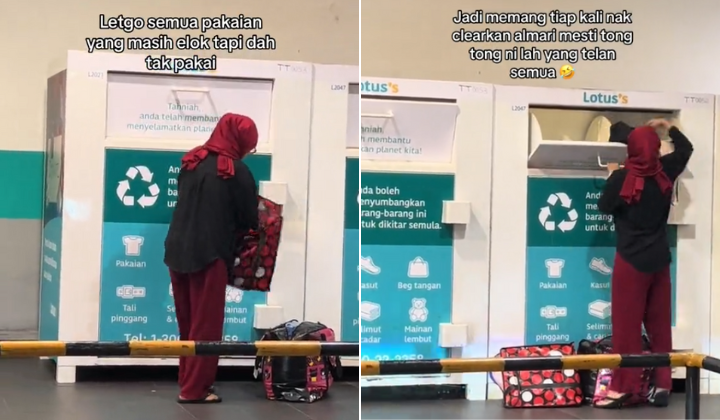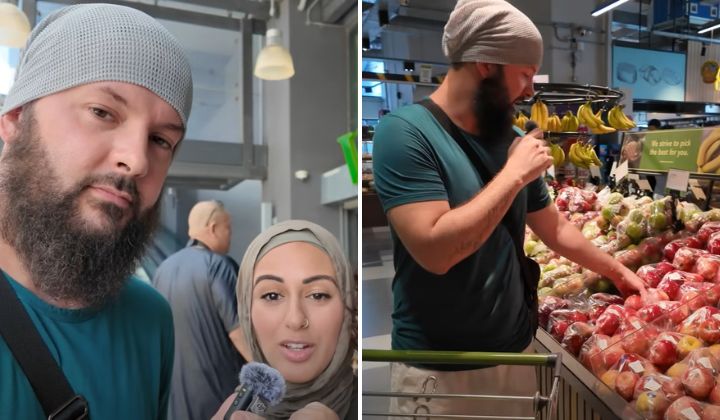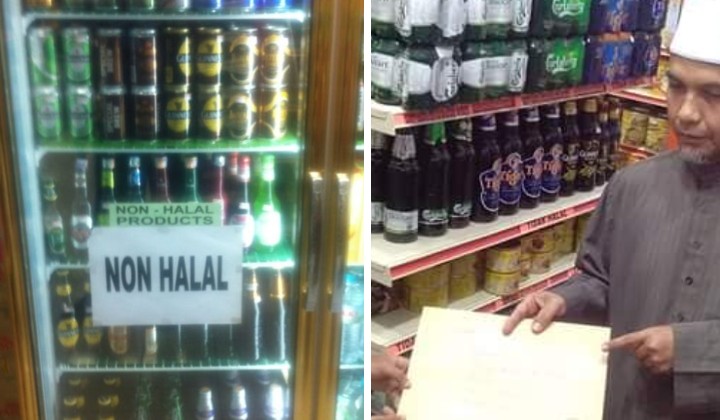A Cardinal Piece Of A Larger Puzzle: How ‘Pure’ & Quality Goods Get To You
Lotus’s aims to not only provide the best for their consumers but to push for the need to be inclusive.
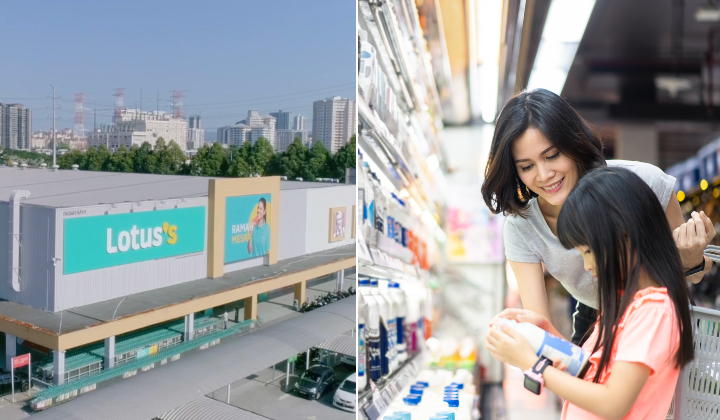
Subscribe to our Telegram channel for the latest stories and updates.
The Malaysian retail industry has been one of the largest contributing sectors to the country’s gross domestic product (GDP) for the past decades.
In 2020, the retail industry contracted by 16.3% from the previous year largely due to the impact of COVID-19. However, according to the March 2022 Malaysia Retail Industry report, the country’s retail industry recorded a year-on-year growth of 26.5% for the fourth quarter of 2021, far above market projections of 18.3% in November 2021. These figures are expected to grow with the reopening of borders and the ease of restrictions that are enabling people to go back to a sense of normalcy.
Retailers have always been a pivotal part of the Malaysian socio-economic landscape. Whether it’s a small-time kedai runcit across the street or a giant retail chain, we’ve all made a run or a quick stop somewhere to get our essentials.

But how many of us have stopped to give a thought to the products we see on the shelves of our local grocery store? We are often so fueled by our needs and wants that we sometimes fail to realize the intricacies that go into the stages of which products are processed or manufactured, packaged and sold.
Being a multiracial country, it’s sometimes difficult to look past our differences and preferences that are so ingrained in our lifestyles due to different cultural values or upbringing. However, retailers like Lotus’s are moving to change that perception by enhancing our understanding of what it really means to be inclusive and how this can actually work socio-economically for the greater good.
How does it all come together?
In an interview with TRP, President of Lotus’s Stores Malaysia, Kenneth Chuah revealed that he understands the role retailers play in the market, which is primarily to provide affordable and quality products.
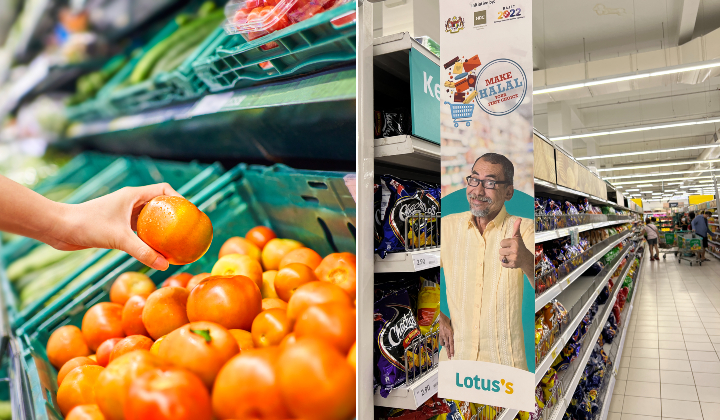
Customers should not need to go shop-by-shop to search for the best products, best prices or the most affordable place to shop. Lotus’s will continue to monitor and react so that our customers can enjoy shopping for the most affordable products at the highest quality we can offer.
Kenneth Chuah, President, Lotus’s Stores Malaysia.
At the height of the pandemic, retailers were hit with supply-chain disruptions, shipping delays, labour shortages and surging customer demand. This led to a rising cost of goods from suppliers which influenced customers’ purchasing decisions.
This is why Lotus’s continues to review their products and prices.
Lotus’s monitors the prices of about 3000 of their products weekly. They work closely and collaboratively with all suppliers to ensure that they only pass through the cost that is necessary and mitigate additional costs. They also look into sourcing local products for more affordable prices instead of importing from abroad which incurs high supply chain costs.
The “Inclusivity” Dilemma
We are so often hit with a variety of new terms that pop-up these days that pertain to a specific lifestyle choice made by consumers. Vegan, cruelty-free, sustainable, organic – these are some of the labels that some consumers look out for when purchasing their products. But a more commonly seen label that Malaysians are familiar with is the certification of Halal products on some products seen in our stores.
But what does halal actually mean?

CEO of the Halal Development Corporation Berhad (HDC), Hairol Ariffein Sahari shared with TRP that China, being the largest importer of Halal goods from Malaysia does not actually have a direct translation of the word ‘Halal’ in Mainland Mandarin language. Hence, the closest translation that they can come up with is the word ‘Purity’.
In essence, the word ‘Halal’ is not exclusive to a certain religion, but rather an added value proposition to goods and services that serve to maintain a high standard for the benefit of consumers.
In line with that, HDC believes that it’s not merely enough for halal governance bodies to develop the Halal agenda. They must work hand-in-hand with the halal industry development framework to develop and expand Halal industries and support local SMEs to be incorporated within the industry.
Growing together
Lotus’s collaboration with HDC in the “Make Halal Your First Choice” campaign aims to shift the mindset of consumers from Halal being a religious sentiment to a quality statement.
Apart from facilitating and creating more opportunities for SMEs through core services and programmes, HDC also implements strategic yet custom made interventions for SMEs as they go through the processes of obtaining the Halal certification.
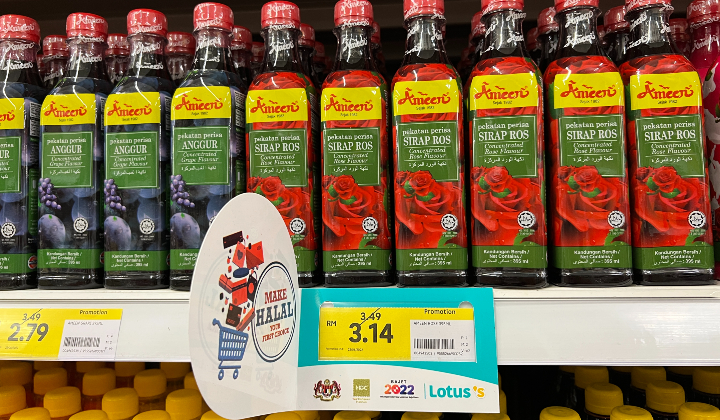
SMEs are often not well-equipped on modern retailing, packaging development, creative innovation or market solutions. The growth of SMEs in Malaysia cannot be done by retailers alone. Collaborative efforts between relevant government bodies and sincere retailers will help develop the skill sets of SMEs and identify opportunities that will help them scale their businesses and grow their market.
Lotus’s also carries out workshops with suppliers that focus on knowledge sharing regarding pricing, market strategy, and product and packaging development. This is done to equip and upgrade SMEs so that Lotus’s will be able to work with them in a much closer and collaborative manner in the future.
Consumers buy high-quality products. They don’t buy your Halal certificate.
Hairol Arrifien, CEO, Halal Development Corporation (HDC).
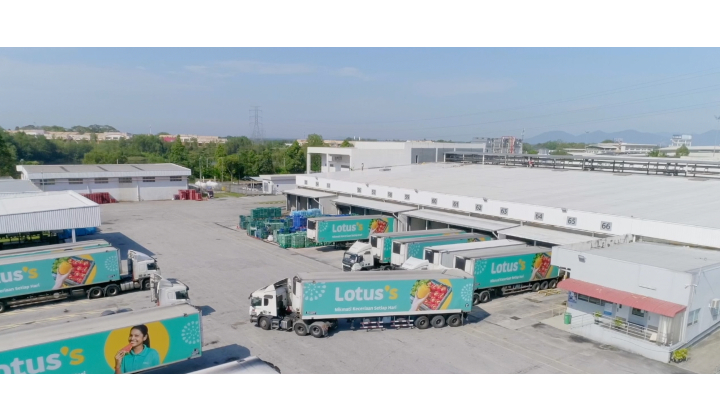
Lotus’s believes that local businesses are an important pillar of economic growth. This is why they have carried out various initiatives and collaborated with government bodies such as HDC, Ministry of Domestic Trade and Consumer Affairs (MDTCA), Ministry of Agriculture and Food Industries (MAFI) and SME Corporation Malaysia to support local SMEs and help them retain themselves after the pandemic.
In support of this, in-store communications, promotions, and product sampling are conducted to amplify their products in our stores during this period.
Kenneth Chuah, President, Lotus’s Stores Malaysia.
Providing only the best
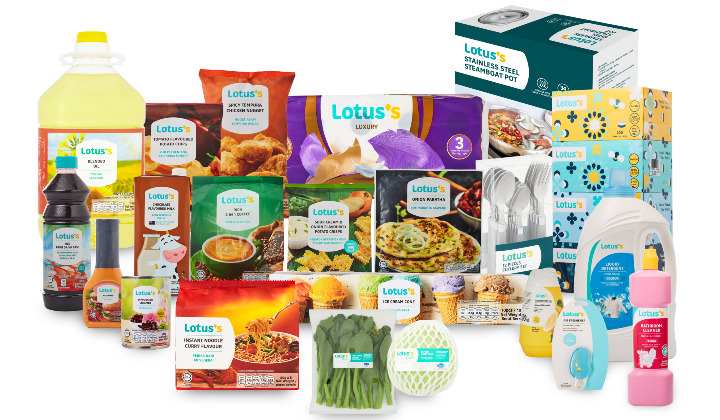
Lotus’s own brand of products are all certified Halal and are locally produced. They comply and even exceed international standards, creating their own benchmark of quality products that can compete against bigger markets. Sample testings are conducted internally and externally prior to product launches. They also work closely with manufacturers to reduce cost so that customers can enjoy the best prices.
Apart from clearly labeling all non-Halal goods, there is a dedicated closed section for non-Halal meat. For deliveries, there is a separate covered tray to segregate Halal and non-Halal across the entire operation.
In line with the #KitakanJiran mindset, Lotus’s efforts to expand the reach of the products to a larger market include B2B programmes that place their products in neighborhood marts or kedai runcits. They also aim to develop and attain the proper technological skill sets in order to grow these B2B programmes to reach a wider network of smaller marts.
It is clear that for a country to develop and sustain its economic growth, key industry players must recognise the ever-changing concerns of their consumers. With progressive retailers such as Lotus’s pushing for the need to be inclusive and functional to provide the best for their consumers, it helps to create a delightful shopping experience for customers.
Share your thoughts with us on TRP’s Facebook, Twitter, and Instagram.

